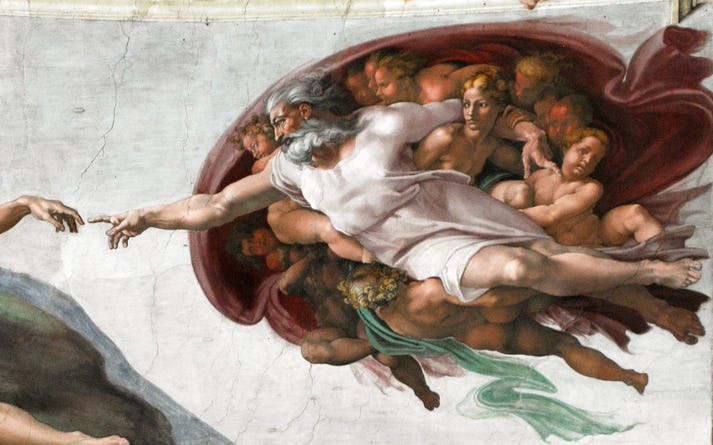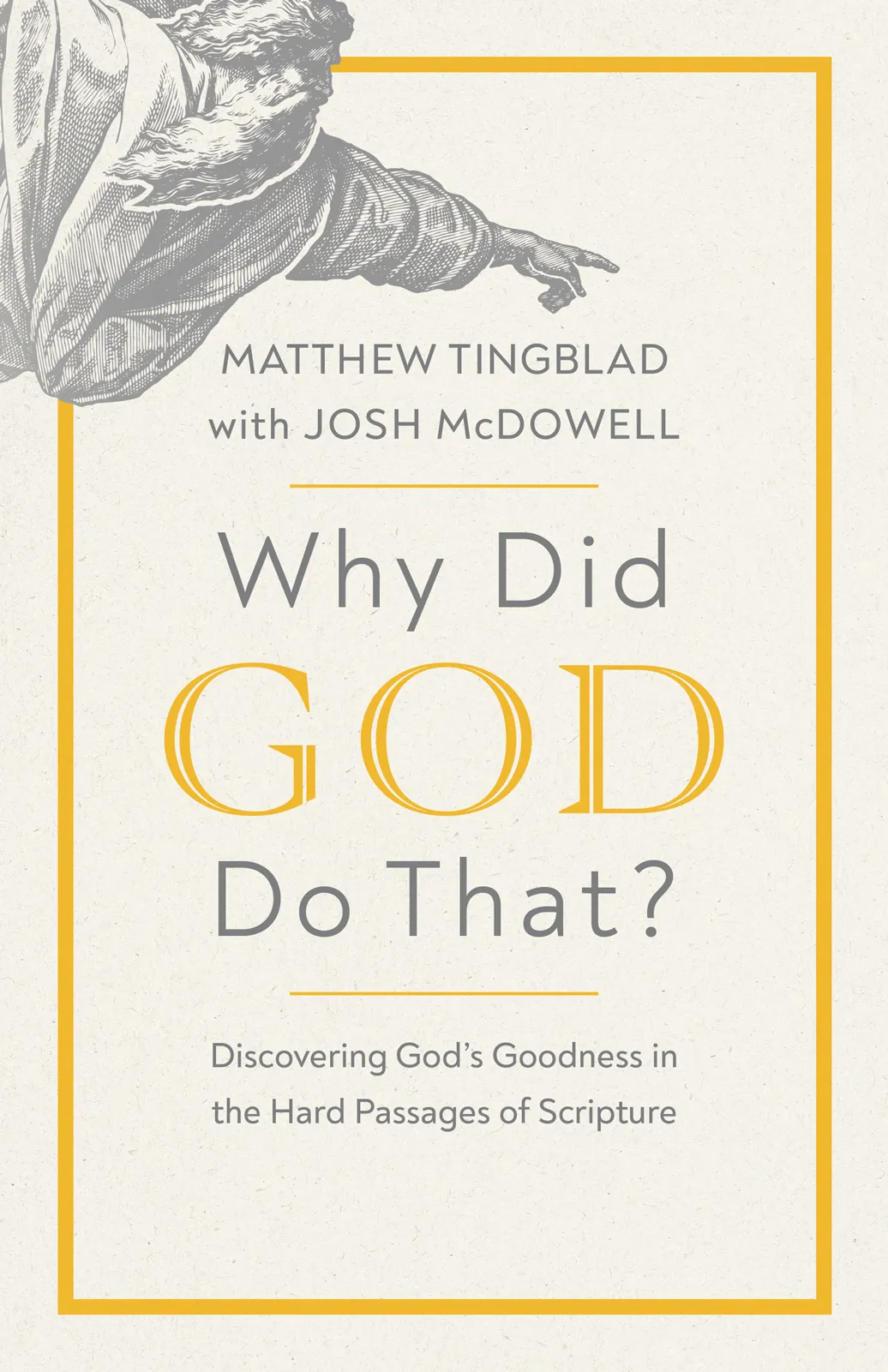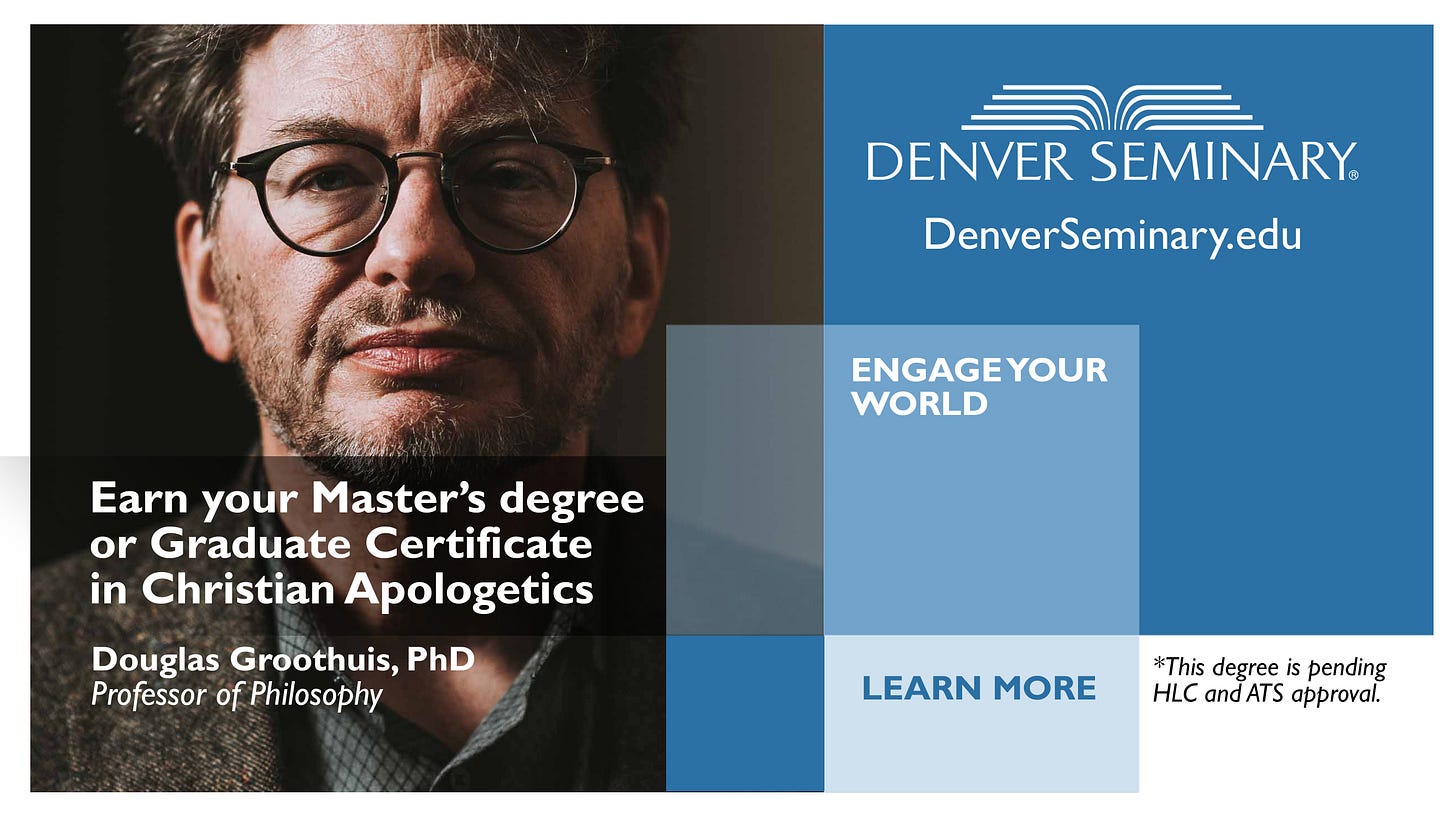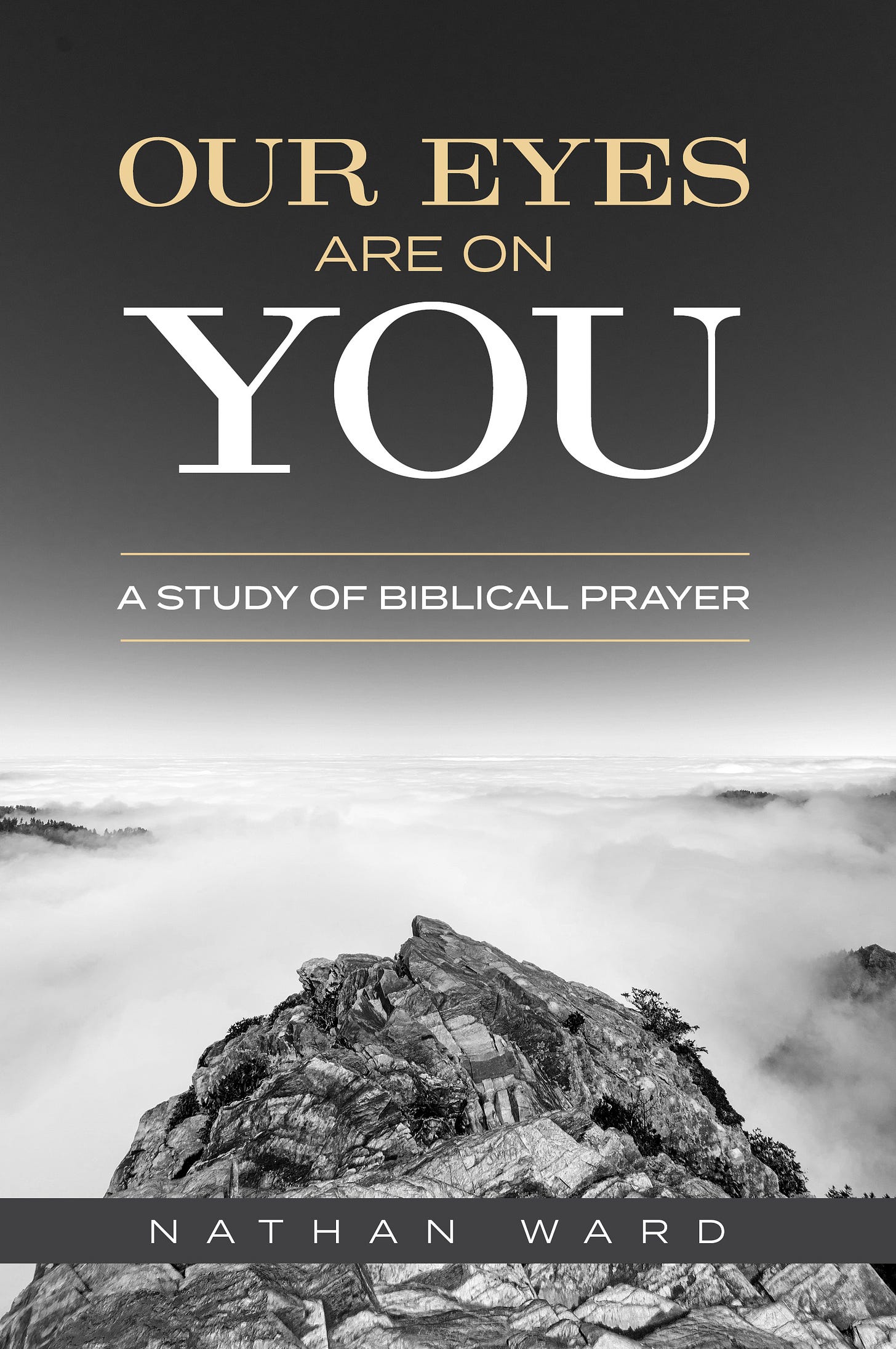The claim that we’re made in God’s image can sound abstract, and not especially relevant to our everyday lives. But in reality nothing is more important to understanding who we are as human beings, and how God has designed us to live in his world. So, below, we’ll briefly survey what it means to be made in God’s image, and then discuss one major implication of this for our lived experience as human beings.
Made in God’s Image
Genesis 1:26-27 declares that mankind is made in God’s image. Scripture doesn’t explain in what specific ways humans image God, and theologians have proposed various answers, most of which fall under three broad categories—structural, functional, and relational.
The structural view emphasizes particular human attributes that reflect God’s nature, such as rationality or the ability to freely act. Functional views hold that humans reflect God’s likeness by what they do—especially in their exercise of rulership over creation (Gen. 1:28). Finally, relational views see humans imaging God most in our ability to enter into relationships with God and one another.1 God is inherently relational as Father, Son, and Holy Spirit, who have existed in loving relationships for eternity, and humans likewise seek to relate to God and other people.2
In my view, it’s not necessary to adopt any one of these categories to the exclusion of the others. It seems better to see each one as capturing an important aspect of how we reflect God’s nature. The implication that I’ll discuss below holds true, regardless of which view (or combination of views) one adopts. As bioethicist John Kilner points out, it is persons who bear God’s image rather than particular attributes: “There is no suggestion [in Scripture] that being in God’s image is constituted only by particular attributes (e.g., abilities, traits, capacities) that people have or have had. Select attributes (even if Godlike) are not what are in God’s image; persons as a whole are.”3 However one understands the nature of God’s image, every human being bears it.4
With this brief overview in mind, we’ll now consider one vitally important way that being made in God’s image makes a tremendous difference in our everyday lives.
Human Value and Purpose
Billions of people around the world take for granted that humans possess inherent value and intrinsic rights. Yet only biblical theism provides the resources for explaining how this can be the case. In particular, Scripture grounds human value and worth in the fact that humans are made in God’s image. This is especially evident in Genesis 9, where God tells Noah and his sons:
from each human being . . . I will demand an accounting for the life of another human being. Whoever sheds human blood, by humans shall their blood be shed; for in the image of God has God made mankind. (9:5-6)
God indicates that because humans are made in his image, their lives are supremely valuable. The one who takes an innocent human life will be accountable both to God, who gives life, and to human society, which has permission to enact the ultimate punishment to fit the ultimate crime.
This recognition of the exalted value of human life contrasts sharply with contemporary views that lack any objective basis for human dignity. The dominant worldview of the West today is characterized by naturalism, which holds that only material entities, forces, and laws exist. On this story, human beings arose accidentally through unplanned processes and thus have no special origin, destiny, or purpose.
The atheist philosopher Bertrand Russell, for example, forthrightly stated that “[mankind’s] origin, his growth, his hopes and fears, his loves and his beliefs, are but the outcome of accidental collocations of atoms.” Further, all of mankind’s achievements will “inevitably be buried beneath the debris of a universe in ruins” and thus any viable philosophy must recognize these truths and build itself “on the firm foundation of unyielding despair.”5
Similarly, and more recently, the atheist biologist William Provine, who taught at Cornell University, said,
Let me summarize my views on what modern evolutionary biology tells us loud and clear—and these are basically Darwin’s views. There are no gods, no purposes, and no goal-directed forces of any kind. There is no life after death. When I die, I am absolutely certain that I am going to be dead. That’s the end of me. There is no ultimate foundation for ethics, no ultimate meaning in life, and no free will for humans, either.6
Richard Dawkins holds a similar view, claiming that “the universe we observe has precisely the properties we should expect if there is, at bottom, no design, no purpose, no evil and no good, nothing but blind, pitiless indifference.”7
I don’t mean to claim here that most people who hold to naturalism are, in practice, moral nihilists, or that they’re not generally good people who live upright lives. I do believe, though, that most are unaware that there is an inherent tension between a belief in human value and dignity and a worldview in which everything that happens is the result of the “accidental collocations of atoms”—how could the jostling of atoms create value or meaning? I believe Russell is quite right to describe these beliefs, if thought through, as leading to “unyielding despair.” As Christian philosopher William Lane Craig summarizes,
The dilemma of modern man is thus truly terrible. The atheistic worldview is insufficient to maintain a happy and consistent life. Man cannot live consistently and happily as though life were ultimately without meaning, value, or purpose. If we try to live consistently within the framework of the atheistic worldview, we shall find ourselves profoundly unhappy.8
The fact that a naturalistic universe leads to despair doesn’t entail that Christianity is true.9 But it does make clear what one must accept and be willing to give up if naturalism is true.
In contrast to the bleak view of naturalism is the Christian account, in which we were created by a loving God in his image so that we could share eternal fellowship with him and with other humans. If Christianity is true, the universal human desire for meaning and significance is fulfilled, and we can find ultimate happiness in glorifying God and enjoying him forever.10
Christian philosopher Paul Gould insightfully notes that “We have this intuition that reality itself, and our lives, are coherent and meaningful and so . . . we seek to locate our lives in a good and true story.”11 In contrast to the soul-crushing story of naturalism, in Christianity we find “an inviting story that points us, relentlessly, to the deep and abiding love of a God who creates, pursues, redeems, and restores all that he has made.”12 Hence, whether we are made in God’s image determines whether we are living our lives in a tragedy, or (ultimately) a comedy.13
Notes
1. Don Thorsen, An Exploration of Christian Theology, 2nd ed. (Grand Rapids: Baker Academic, 2020), 132-133.
2. Small “o” orthodox theologians recognize that each of these aspects of human nature has been distorted by the fall. For example, our wills are bent toward evil, we fail to rightly steward God’s creation, and we often harm (by commission or omission) other human beings. Though we no longer reflect God’s image as brightly as Adam and Eve did before the fall, we still possess it, and it provides the basis for our inherent value (Gen. 9:5-6; James 3:9).
3. John Kilner, “The Image of God and Human Dignity: Recovering a Biblical Treasure,” in Created in the Image of God: Applications and Implications for our Cultural Confusion, ed. David S. Dockery with Lauren McAfee (Nashville: Forefront Books, 2023), 34.
4. This is evident from Genesis 1:26-27, Genesis 9:5-6, and James 3:9.
5. Bertrand Russell, “The Free Man’s Worship,” https://users.drew.edu/~jlenz/br-free-mans-worship.html. The essay originally appeared in The Independent Review 1 (Dec. 1903), 415-24.
6. “William Provine, RIP: Noble in His Honesty,” Evolution News, https://evolutionnews.org/2015/09/william_provine/. A number of Christian thinkers accept Darwinian evolution, but reject its correlation with naturalism or atheism. See, for example, Alvin Plantinga, Where the Conflict Really Lies: Science, Religion, and Naturalism (New York: Oxford University Press, 2012).
7. Richard Dawkins, River Out of Eden: A Darwinian View of Life (New York: Basic Books, 1995), 133.
8. William Lane Craig, Reasonable Faith: Christian Truth and Apologetics, 3rd ed. (Wheaton, IL: Crossway Books, 2008), 84.
9. Yet C. S. Lewis suggested what some Christian philosophers have termed the argument from desire: “If I find in myself a desire which no experience in this world can satisfy, the most probable explanation is that I was made for another world” (Mere Christianity [New York: HarperOne] 2001), 136–137. For an overview, see Peter Kreeft, “The Argument from Desire,” https://www.peterkreeft.com/topics/desire.htm.
10. Westminster Shorter Catechism, Question 1.
11. Paul M. Gould, “Locating Your Life in God’s Story,” July Issue of The Worldview Bulletin-Pt. 1, https://worldviewbulletin.substack.com/p/july-issue-of-the-worldview-bulletin-36d.
12. Paul M. Gould, Cultural Apologetics: Renewing the Christian Voice, Conscience, and Imagination in a Disenchanted World (Grand Rapids: Zondervan, 2019), 41.
13. In the literary or dramatic sense in which adversities are ultimately overcome and peace and harmony are restored in the end.
*This article originally appeared at Summit Ministries.
— Christopher L. Reese (MDiv, ThM) is a writer, editor, and journalist. He is the founder and editor of The Worldview Bulletin and cofounder of the Christian Apologetics Alliance. He is a general editor of the Dictionary of Christianity and Science (Zondervan, 2017) and Three Views on Christianity and Science (Zondervan, 2021) and his work has appeared in Christianity Today, Bible Gateway, Beliefnet, Summit Ministries, and other sites.
[sponsored]
Why Did God Do That?
Discovering God’s Goodness in the Hard Passages of Scripture
Violent wars, harsh laws, pronounced judgments. Christianity proclaims God’s goodness, yet the Bible is filled with passages that seem to paint a different picture. On the surface, such depictions can hinder our confidence in God’s goodness. But when we’re willing to look deeper, we discover a consistent purpose behind everything God does—and that he is greater than we could ever imagine.
Alongside bestselling author Josh McDowell, Matthew Tingblad invites you to discover how a good God has good reasons for his challenging actions in the Bible. Throughout, you will uncover the reality of God’s consistent motives and purposes: holiness, justice, and radical mercy.
Whether you have your own questions about God or are ministering to those who do, Matthew and Josh will guide you through these difficult passages and ideas, all the while pointing to God’s power and redeeming love.
“Violence in the Old Testament. Misogyny. Hell. These are topics many Christians would shy away from or try to dismiss with a quick answer. Instead, Tingblad and McDowell acknowledge the real challenge these topics pose—and yet boldly proclaim that Christianity has the resources to demonstrate God’s goodness. This is a nuanced, well-balanced, and exceedingly strong case for our good God.”
— Lee Strobel, New York Times bestselling author and founding director of the Lee Strobel Center for Evangelism and Applied Apologetics, Colorado Christian University
“I am thrilled about the release of Tingblad and McDowell’s stunning book Why Did God Do That? While well organized and accessible, this book is deep, thorough, and carefully researched. . . . Tingblad and McDowell argue convincingly not that God is good in spite of these texts; rather, he is good within them. There is no book like this one. I could not recommend it more highly.”
— J.P. Moreland, Distinguished Professor of Philosophy, Talbot School of Theology, Biola University
Find Why Did God Do That? at Amazon, Harvest House, and other major booksellers.
Christian apologetics helps to quiet the doubts of those we are witnessing to and helps to effectively carry out the mission of God in the world.
The Master of Arts or Graduate Certificate in Christian apologetics* equips students in the discipline of defending the Christian worldview as objectively true, compellingly rational, and existentially pertinent to the whole of life. In addition to core courses in Bible, theology, and mentoring, through this degree students will learn the proper method of apologetics, the arguments for the existence of God, the finality of Christ, and the reliability of the Bible, as well as how to bring the gospel to those in other religions, learn basic biblical ethics, how to respond to contemporary moral questions, and how to respond intelligently to challenges to the biblical worldview.
*These degrees are pending HLC and ATC approval.
LEARN MORE AND APPLY AT:
https://denverseminary.edu/program/master-of-arts/christian-apologetics/
Our Eyes Are On You: A Study of Biblical Prayer
Our Eyes Are On You: A Study of Biblical Prayer is an examination of the context and contents of 35 Biblical prayers to make connections to our lives, informing us about prayer, the things about which we should pray, and the God to whom we pray. The prayers covered include those of Abraham, Moses, Hannah, David, Jehoshaphat, Hezekiah, Jeremiah, Habakkuk, Jesus, the Apostles, Paul, and many others.
“This book expertly guides us on a tour of prayers in the Bible so that we better understand the wondrous mystery of prayer but also meaningfully enhances our own life of prayer. It is a marvelous gift that I will read and re-read.”
— David E. Garland, Professor Emeritus of Christians Scriptures, George W. Truett Theological Seminary
“This is a beautifully clear and profound and wide-ranging and thoughtful and illuminating book on prayer in the Scriptures. The people who read it and put its insights into practice are going to have their relationship with God transformed.”
— John Goldingay, Senior Professor of Old Testament, Fuller Theological Seminary
Find Our Eyes Are on You at Amazon, Barnes & Noble, and other major booksellers.
Advertise in The Worldview Bulletin
Do you have a ministry, book, course, conference, or product you’d like to promote to 6,779 Worldview Bulletin readers? Click here to learn how. We’re currently booking for September-October.
Support The Worldview Bulletin
Your support makes The Worldview Bulletin possible! We couldn’t do this without the support of you, our readers. We would be grateful for your help in any of the following ways, which allows us to continue providing our readers and the world with the very best in Christian philosophy, apologetics, and defense of the Christian worldview.
Subscribe to receive regular articles from our team only available to paid subscribers, and gain access to our full archive of scores of articles and new videos.
Give a gift subscription to a family member or friend who would benefit, or subscribe a group of four or more and save 25%.
Make a one-time or recurring donation.
“Staffed by a very respected and biblically faithful group of Evangelical scholars, The Worldview Bulletin provides all of us with timely, relevant, and Christian-worldview analysis of, and response to, the tough issues of our day. I love these folks and thank God for their work in this effort.”
— JP Moreland, distinguished professor of philosophy, Talbot School of Theology, Biola University, author of Scientism and Secularism: Learning to Respond to a Dangerous Ideology (Crossway)
“The Worldview Bulletin is a must-have resource for everyone who’s committed to spreading and defending the faith. It’s timely, always relevant, frequently eye-opening, and it never fails to encourage, inspire, and equip.”
— Lee Strobel, New York Times bestselling author of more than forty books and founding director of the Lee Strobel Center for Evangelism and Applied Apologetics
“I find The Worldview Bulletin very stimulating and would encourage all thinking Christians to read it.”
— John Lennox, emeritus professor of mathematics, University of Oxford, emeritus fellow in mathematics and philosophy of science, Green Templeton College, author of Cosmic Chemistry: Do God and Science Mix? (Lion)
“The Worldview Bulletin is a wonderful resource for the church. It’s timely and helpful.” — Sean McDowell, associate professor in the Christian Apologetics program at Talbot School of Theology and author of The Fate of the Apostles: Examining the Martyrdom Accounts of the Closest Followers of Jesus (Routledge)
“Are you looking for a way to defend your Christian worldview? If so, look no further. At The Worldview Bulletin you’ll encounter world-leading scholars dispensing truth in a digestible format. Don’t miss out on this unique opportunity to engage in this meeting of the minds.”
— Bobby Conway, Founder of The One-Minute Apologist, author of Does God Exist?: And 51 Other Compelling Questions About God and the Bible (Harvest House)
“The Worldview Bulletin is a wonderful resource for those desiring to inform themselves in matters of Christian apologetics. Learn key points in succinct articles written by leading scholars and ministers. All for the monthly price of a cup of coffee!”
— Michael Licona, associate professor of theology at Houston Christian University and author of Why Are There Differences in the Gospels? What We Can Learn From Ancient Biography (Oxford University Press)
“The Worldview Bulletin shines a brilliant light of truth in a darkening world. These authors, who are experts in their field, consistently provide logical, rational, moral and most importantly biblical answers, in response to the deceitful narratives we are bombarded with daily. I have found it a great source of enlightenment, comfort, and inspiration.”
— B. Shadbolt, Subscriber, New South Wales, Australia






